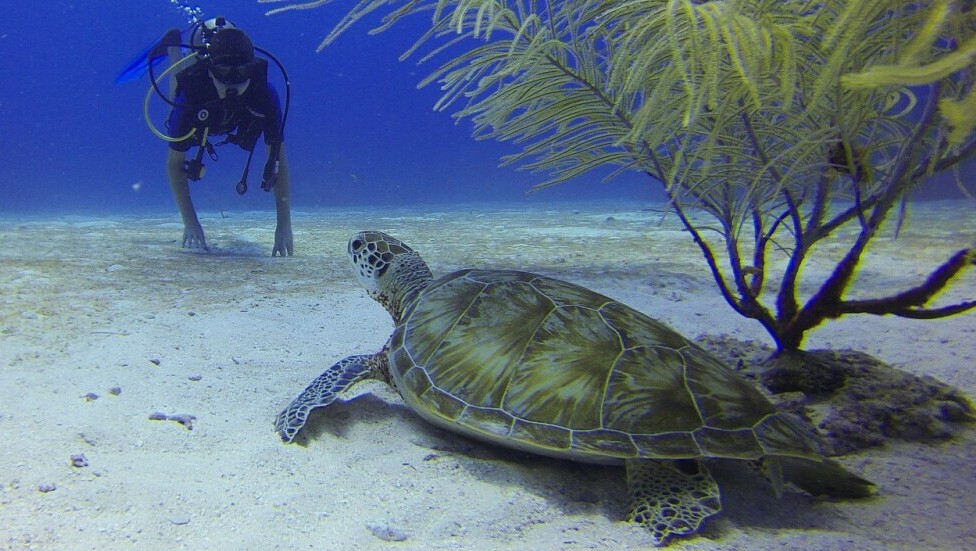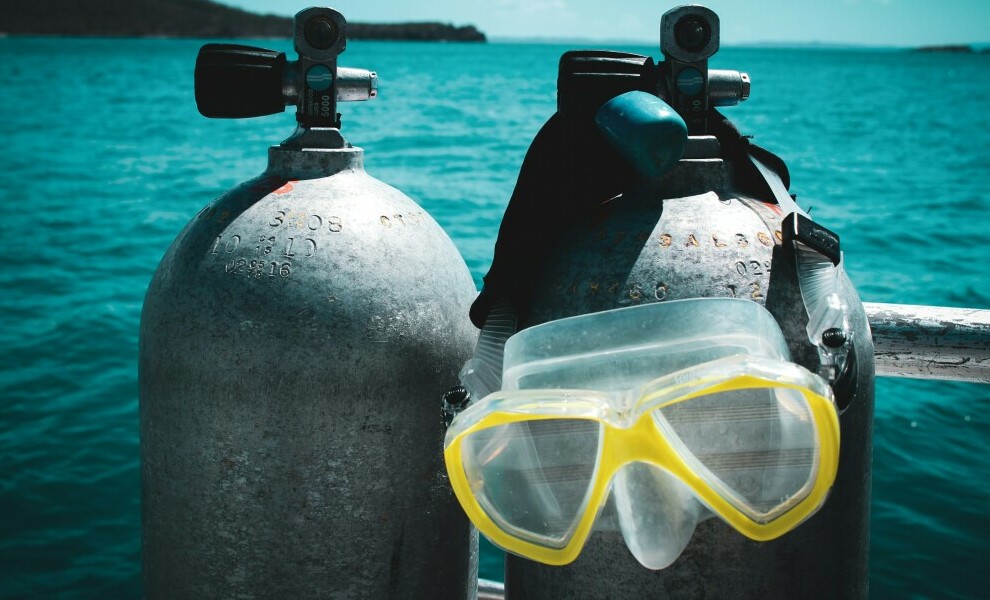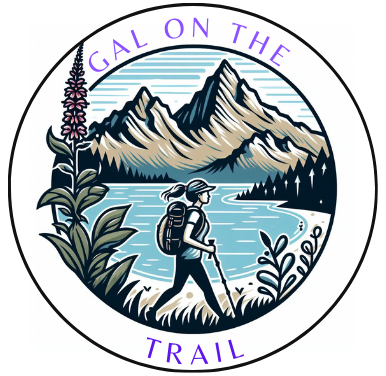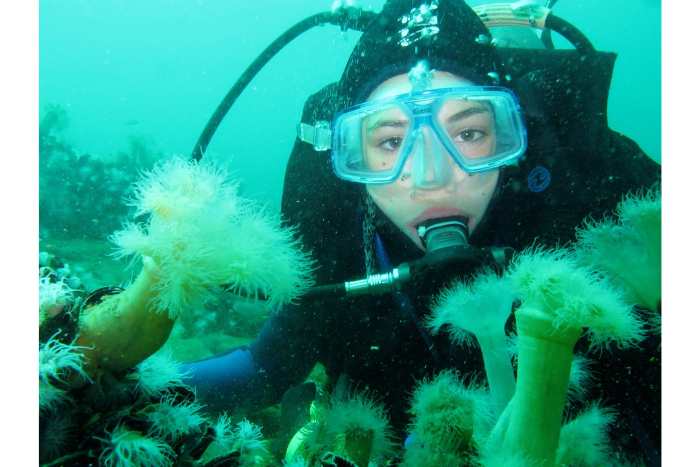Introduction to Scuba Diving For Women
I love being in the water. Being surrounded by fish, turtles, coral is such a relaxing experience. Scuba diving is something I am wanting to try. I have done a lot of research on where to get certified and places to go. Living in Alaska, there is not a ton of opportunities! Last year in Hawaii, my son was able to go “snuba” diving which is a mix of scuba and snorkeling and it was a great start towards our scuba diving goals! In this blog, I will talk about the health bene beginning steps as well as some amazing places to scuba!

Scuba diving offers an immersive experience to explore the mysteries of the ocean. But for women, the experience can be empowering. In the scuba community, women are making a splash. With proper training and equipment, women are equally capable and can even have certain advantages, such as naturally higher body fat percentages that can be beneficial for buoyancy.
Safety is probably on the forefront of your mind; especially for women who are new to diving. The good news is with advances in dive gear and increased awareness around health and safety practices, scuba diving has never been safer. Plus, there’s the buddy system, a fundamental safety measure where divers look out for each other.
The socialization that comes with diving is significant. There are lots of supportive communities, both locally and online, where they can share experiences, learn from each other, and plan dives with those who understand the unique aspects of diving as a woman. I am always up for a “girl’s trip!”
While snorkeling can be a good workout, keep in mind it offers more than a physical workout. The underwater world provides a experience for growth, resilience, and tranquility that can enrich the lives of women above and below the surface.
Diving into Wellness: Health Benefits of Scuba Diving
Have you ever considered scuba diving as a path to better health? It is a great excuse to dive in and explore the underwater world. Many people don’t consider the physical health benefits of scuba diving. I’m here to tell you that diving isn’t just about exploring the beauty under the sea; it’s also about your physical well-being. Below is a list of all the great benefits scuba diving has to offer!
- Improved Strength:
-
- Scuba diving uses various muscle groups, including arms, legs, and core, to propel through the water and handle all your gear. This continual movement builds muscular strength over time.
- The resistance provided by water makes muscles work harder, enhancing muscle tone and endurance.
- Regular diving sessions contribute to overall physical fitness, particularly for individuals looking to tone muscles and improve their strength.
- Enhanced Flexibility:
-
- The fluid nature of diving movements encourages flexibility as you move through different underwater environments.
- Stretching and reaching to control buoyancy and adjust equipment underwater help in increasing joint flexibility and range of motion.
- Flexibility gained from scuba diving can lead to improved posture, reduced risk of injury, and enhanced performance in other physical activities. Check out my other blog posts for great outdoor activities!
- Cardiovascular Health:
-
- The aerobic nature of scuba diving requires controlled breathing and sustained physical exertion, which strengthens the heart and improves cardiovascular fitness.
- Regular diving sessions can help lower blood pressure and reduce the risk of heart disease by improving circulation and oxygenation of tissues.
- Diving often involves swimming against currents, providing an excellent cardiovascular workout that increases endurance and stamina over time.
- Stress Reduction:
-
- Immersion in the underwater environment has been shown to reduce stress and anxiety levels, promoting mental relaxation and overall well-being.
- The rhythmic breathing patterns required during diving have a calming effect on the mind and body, similar to meditation techniques.
- Being surrounded by marine life and experiencing the tranquility of the underwater world can provide a therapeutic escape from everyday stressors, leading to improved mental health.
- Improved Respiratory Health:
-
- Controlled, deep breathing practiced during diving helps to increase lung capacity and efficiency.
- Regular diving can reduce the risk of respiratory issues such as asthma and improve overall respiratory function.
- Breathing compressed air at depth can enhance oxygenation of tissues and improve respiratory health over time.
- Increased Vitamin D Production:
-
- Diving often takes place in sunny, tropical locations where exposure to sunlight stimulates vitamin D production in the skin.
- Adequate vitamin D levels are essential for maintaining bone health, boosting the immune system, and reducing the risk of chronic diseases such as osteoporosis and certain cancers.
- Enjoying the benefits of diving in the sun contributes to overall health and well-being beyond just the physical aspects of the activity.
While writing this blog at my kitchen table, I am looking out my window at the frosty morning, and wishing I were underwater! I would love some water therapy right now. The weightlessness of being underwater can be therapeutic, offering a physical reprieve that’s hard to find on land.

Getting Started with Scuba Diving
Scuba diving involves several steps to ensure safety, competence, and enjoyment. Often times there are quick lessons for one day dives that are a little less rigorous so don’t feel overwhelmed by this list!
Here’s a detailed guide to walk you through the basic steps of getting fully certified. You’re going to find out about the typical certification journey, which involves classroom learning, confined water dives, and open water dives. The time it takes can vary, but generally, you can expect to be certified in a few days to a few weeks depending on the intensity of the course.
Once certified, you’re not just licensed to dive; you’ve gained entry into a new community and you’re well-equipped to take on more advanced training and explore specialized diving interests.
Research and Education:
Research Dive Centers: Look for reputable dive centers or resorts in your area or a destination you’re interested in diving.
Understand Requirements: Learn about the age, health, and swimming proficiency requirements for scuba diving certification courses.
Medical Clearance:
-
- Consult a Physician: If you have any medical conditions or concerns, consult with a physician to ensure scuba diving is safe for you.
- Complete Medical Questionnaire: Most scuba certification agencies require you to fill out a medical questionnaire to assess your fitness for diving.
Choose a Certification Agency:
-
- Research Agencies: Explore different scuba diving certification agencies such as PADI, NAUI, SSI, or SDI.
- Select Course: Choose the certification course that best fits your schedule, budget, and learning preferences.
- Complete Classroom and Pool Training:
- Enroll in a Course: Sign up for a beginner scuba diving course, typically consisting of classroom sessions and confined water training in a pool.
- Learn Theory: Study diving principles, equipment, safety procedures, and dive planning in the classroom.
- Practice Skills: Acquire basic diving skills and techniques in a controlled pool environment under the guidance of a certified instructor.
Open Water Dives:
-
- Complete Dives with Instructor: Participate in a series of open water dives under the supervision of a certified instructor.
- Apply Skills: Demonstrate mastery of skills learned in confined water while experiencing real diving conditions in natural environments.
Certification:
-
- Pass Knowledge Assessments: Successfully complete written exams or quizzes to demonstrate understanding of diving principles and safety.
- Receive Certification Card: Upon completion of all training requirements, receive a scuba diving certification card from your chosen agency.
- Rent or Purchase Equipment:
Rent Gear: Initially, you can rent scuba diving equipment from dive centers or resorts.
-
- Purchase Gear: As you become more experienced and committed to diving, consider investing in your own gear for comfort and familiarity.
Continue Education and Experience:
-
- Advanced Courses: Consider enrolling in advanced diving courses to expand your skills and knowledge, such as advanced open water, rescue diver, or specialty courses.
- Gain Experience: Dive regularly to gain experience, confidence, and familiarity with different dive sites, conditions, and marine environments.
Dive Responsibly:
-
- Respect the Environment: Practice responsible diving behavior to minimize your impact on marine ecosystems and protect underwater biodiversity.
- Stay Within Limits: Dive within your training and experience limits, and always follow safe diving practices to ensure your safety and the safety of others.
Stay Active and Engaged:
-
- Stay Informed: Keep up-to-date with diving news, safety recommendations, and equipment advancements.
- Join a Dive Community: Participate in dive clubs, forums, or social media groups to connect with other divers, share experiences, and find dive buddies.
By following these steps, you can enjoy an exciting journey into the world of scuba diving safely and confidently. Now that you are familiar with the the world of scuba diving, let’s dive in to some awesome places to scuba!
Top 5 Must-Visit Scuba Diving Destinations for Women

Strap on your mask, grab your underwater camera and let’s go! But where should you go to experience the best diving spots? Let’s talk about places that are not just breathtakingly beautiful, but are also women-friendly, safe, and cater to a range of skill levels.
As mentioned in my snorkel blog post, there’s the Great Barrier Reef in Australia. It’s not just a diving hot spot due to its booming biodiversity of aquatic life, but it’s also packed with spots perfect for beginners. There are plenty of opportunities for women-only dive trips, ensuring a comfortable and empowering environment if that is what you prefer.
Next up is the Belize Barrier Reef. It has access to the famous Great Blue Hole, which is on many divers’ bucket lists. It is a marine sinkhole. The clear waters and healthy reefs make it a haven for both new and experienced divers, and the local communities are welcoming to female travelers.
Diving into Raja Ampat, Indonesia, is like entering another world. It’s known for its outstanding marine life diversity. There is over 1,300 species of fish and 600 species of coral.
Don’t forget The Red Sea in Egypt. It has historical shipwrecks and vibrant ocean life. Diving here is both an underwater history lesson and a natural spectacle.
Finally, there’s Cozumel, Mexico. Perhaps geared for more advanced divers with its swift currents. Yet, Cozumel has managed to maintain a cozy, small-town feel, with a friendly vibe.
* A little disclosure, this site contains affiliate links. When you buy from the links provided, I may receive a small commission at no extra cost to you. It will help me bring valuable content to my readers like you!*
If you made it through this lengthy post, I think you are serious and ready to get your toes wet with scuba diving! This is on my bucket list of things to try in retirement. Since I was retired for 3 months and picked up a new job, I think I will have to wait a while. I would love to hear about your favorite places to go scuba diving so leave me a comment if you will!

